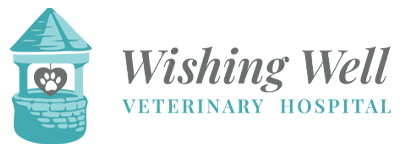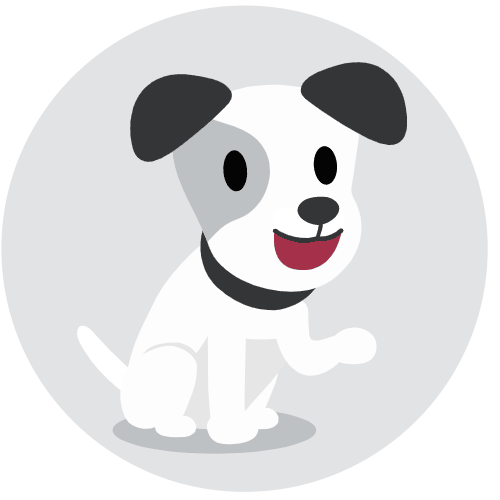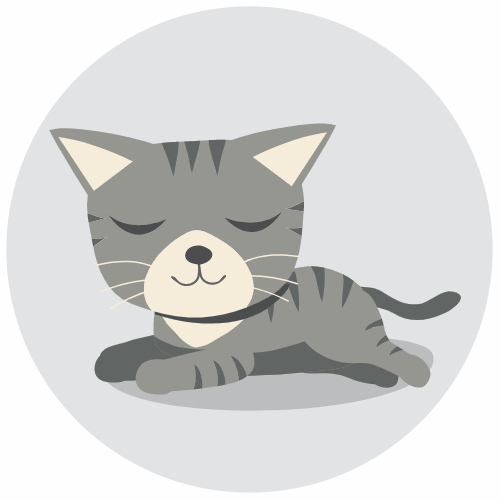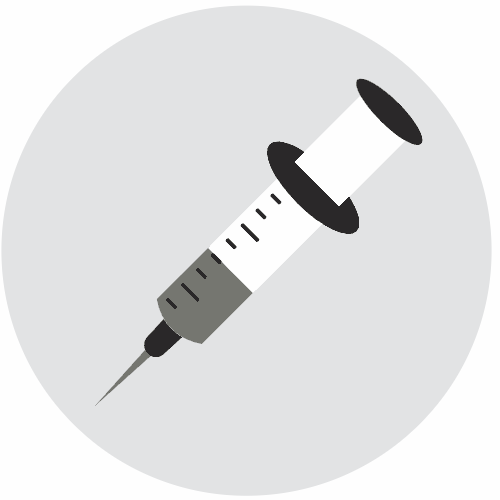If you’ve recently added a new furry friend to your family, the team at Wishing Well Veterinary Hospital can’t wait to get your pet started off on the right paw. We perform a series of
THREE EXAMS
for our puppy and kitten care to administer your pet’s first vaccinations and observe their growth to ensure they live a longer, healthier life.
Your Puppy or Kitten’s First Exams in Wayne, NJ
During your pet’s first series of exams, your veterinarian will perform a physical exam and provide the appropriate vaccinations to protect them from various diseases. We want the very best for your pet and bringing them in for each of these exams can offer great socialization opportunities all while beginning a lifetime of quality healthcare.
First Exam
Normally, we see your puppy or kitten for their first exam at about 8 weeks old. However, if your pet is younger than 1 year, we still consider this their first exam. In addition to a physical examination, we also provide their first round of puppy and kitten shots:
Kittens:
- FVRCP (Feline Viral Rhinotrachetitis, Calici virus, Panleukopenia) #1
- Deworming #1
Puppies:
- DA2PP (Distemper, Adenovirus, Parvovirus and Parainfluenza)
- Deworming
Second Exam
The second exam occurs when your pet is around 12 weeks of age so that we can evaluate their growth and development. We will also administer their second set of vaccinations:
Kittens:
- FVRCP (Feline Viral Rhinotrachetitis, Calici virus, Panleukopenia)
- Deworming
Puppies:
- DA2PP (Distemper, Adenovirus, Parvovirus and Parainfluenza)
- Leptospirosis
- Bordetella
- Final Deworming
Third Exam
The third puppy and kitten exam happens when your pet is about 16 weeks old. Your veterinarian can perform a final physical exam, and finish their initial kitten and puppy shots:
Kittens:
- FVRCP (Feline Viral Rhinotrachetitis, Calici virus, Panleukopenia)
- FeLV (Feline Leukemia Virus)
- Rabies
Puppies:
- DA2PP (Distemper, Adenovirus, Parvovirus and Parainfluenza)
- Leptospirosis
- Bordetella
- Rabies

The Importance of Spay and Neuter Surgery
We recommend all pets have spay or neuter surgery scheduled at a certain age to prevent certain health and behavioral issues from occurring. Your veterinarian may discuss this at your final puppy and kitten exam, but if you have additional concerns, we’d be happy to discuss the surgery with you.
HOW DO I SET A POTTY TRAINING SCHEDULE?
- First thing in the morning
- Last thing at night
- After spending time in a crate
- Upon waking up from a nap
- After eating or drinking
- Time between potty brakes
should be no more than 2-4 hours
HOW DO I CRATE TRAIN MY PUPPY?
- Dogs like clean “home” areas and are less likely to have accidents
- Place crate near exterior door for quick relief
- The crate should be big enough for your puppy to stand up, turn around, and lay down
WHEN SHOULD I REINFORCE GOOD BEHAVIOR?
- Don’t scold your puppy for having an accident
- Praise them for doing the right thing
- Reward them with treats, pats, and attention
How do I get my puppy to stop bad behavior?
WHAT CAN MY PUPPY CHEW ON?
- Chewing is a calming mechanism for puppies
- Keep chewing toys around the house; when they start to chew on toys instead of household objects, give them praise
HOW DO I STOP MY PUPPY FROM BARKING?
- Scolding your puppy when they bark can make it worse; instead, ignore barking and praise quiet
- Training your dog to sit helps them fight impulsive barking when they want something
HOW DO I STOP MY PUPPY FROM BEGGING AT THE TABLE?
- Feed them first before you eat
- Create a cozy “go-to” spot near the table where they can be comfortable
- Praise them with treats when they don’t beg
How do I feed my puppy?
HOW OFTEN DO I FEED MY PUPPY?
- 6-12 weeks: 4x a day
- 3-6 months: 3x a day
- 6-12 months: 2x a day
- After a year: 2 half portions a day
- Watch your puppy to gauge if they are eating healthy
WHAT FOOD SHOULD I FEED MY PUPPY?
- Look for AAFCO guidelines
- Look for age and health specific formulas
- Ask your vet for tailored recommendations
WHAT ARE HARMFUL FOODS FOR PUPPIES?
Dairy, chocolate, grapes, and sugary foods, snacks, or desserts
WHAT THINGS SHOULD I BUY FOR A KITTEN?
- Scratch posts (helps preserve furniture!)
- Litter boxes, cat carriers, and food and water bowls
- Stain and odor remover
WHAT SHOULD I MOVE OUT OF THE WAY?
- Toxic plants
- Cleaners and sprays
- Any dog food that might be in the house
HOW CAN MY CAT BE COMFORTABLE?
- Bed and blanket
- Small, cozy space
- Grooming supplies
- Pheromone products
How should I play with my kitten?
HOW DO I PLAY SAFELY WITH MY KITTEN?
- Use balls, jingles, anything on a string, and cotton chew toys
- Avoid “play” with your hands to avoid injury when full grown
WHAT ARE THE BENEFITS OF PLAYING WITH YOUR KITTEN?
- Strengthens your bond with your kitten
- Allows them to release energy that could lead to damage
- Builds trust and comfort for them within a new home
HOW OFTEN SHOULD I PLAY WITH MY KITTEN?
- 20+ minutes of play per day
- Set aside at least two times a day preferably early in the morning and late at night
How do I feed a kitten?
HOW OFTEN SHOULD I FEED MY KITTEN?
- Dry food only: leave available at all times
- Wet food only: feed at least four times a day
- Combo: feed wet food twice a day and leave dry food available
WHAT SHOULD I FEED MY KITTEN?
- Look for AAFCO guidelines
- Look for age and health specific formulas
- Ask your vet for tailored recommendations
WHAT ARE HARMFUL FOODS FOR KITTENS?
- Raw meats, eggs, raw fish
- Grapes, chocolate, and dairy





